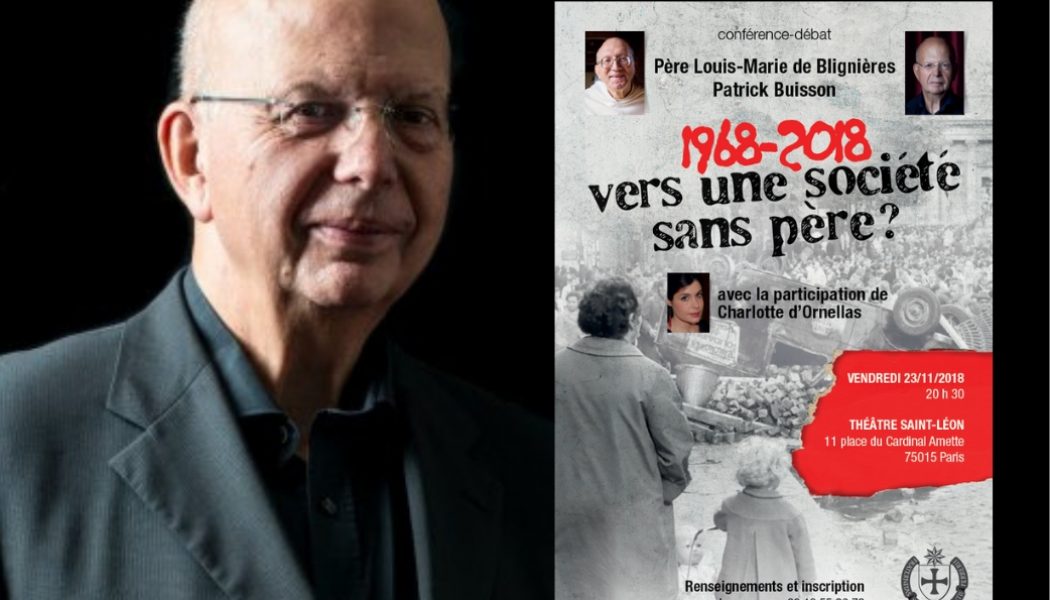La Russie n’est pas guérie du marxisme

A l’occasion de la parution chez Artège du livre “Frères chrétiens, levez-vous ! Un témoignage choc pour réveiller l’Occident” du Père Dimitri Smirnov, Président de la Commission pour la Famille et pour la Vie du Patriarcat de Moscou, interrogé par Guillaume d’Alançon, Le Salon Beige propose de vous livrer en plusieurs fois quelques bonne feuilles. Parmi les sujets sensibles de l’heure, il y a le centenaire de Soljénitsyne et les questionnements éthiques posés par l’actualité Carlos Ghosn. Tout le monde n’est pas François Michelin…
L’Occident écoute et respecte bon nombre de personnalités emblématiques de Russie, comme Soljénitsyne par exemple…
Les personnes de cette envergure sont évidemment devenues rares. Combien de livres publiés à notre époque passeront à la postérité ? Je m’interroge. Parce que, selon-moi, la source de l’art, c’est le Christ….
Et comment percevez-vous Soljénitsyne ?
S’il eut peut-être moins de talent que certains grands auteurs auxquels on peut se référer, Dostoïevski par exemple, les ouvrages qu’il a écrit feront partie pour toujours de l’anthologie. J’ai lu et beaucoup apprécié tous ses romans. Je le connaissais personnellement.
Chez nous en France, François Michelin, qui fut un très grand patron français d’une entreprise de pneumatiques bien connue, disait en 1998 dans son livre d’entretiens « Et pourquoi pas ? » que la France était en réalité un des derniers pays marxiste. J’ajoute que François Michelin était un chrétien exceptionnel que je verrai bien sur les autels… Mais je reviens à la question qui me taraude : la Russie est-elle guérie du marxisme ?
Non, pas du tout. Si on considère le marxisme comme un enseignement vivant et capable de vaincre le monde, alors la Russie s’en est guérie dès 1945, après la victoire, mais les habitudes qui se sont installées ont demeuré. Il y a eu récemment un référendum dans la ville de Kirov pour lui restituer son ancien nom de Viatka et une majorité, courte, mais une majorité quand même, a voté pour conserver le nom de Kirov. Or, Kirov n’a jamais mis les pieds à Viatka, c’était un ami de Staline, rien n’explique que son nom ait été donné à cette ville. Les cas similaires sont nombreux, je pense qu’à notre époque cela s’explique par le fait que la majorité des gens ont tout simplement oublié comment c’était auparavant. Moi je ne peux pas oublier la faim que j’ai éprouvée dans mon enfance. Certains vivaient bien. Le marxisme proprement dit, personne ne le connaît, hormis quelques anciens professeurs de marxisme comme matière universitaire. À part ça, tout le monde a complètement oublié, et cela n’intéresse plus personne… Quand j’étais étudiant, nous avions la visite de Français, des marxistes, des vrais. Ils nous étonnaient beaucoup par leur sérieux dans l’étude de Marx. Un jour, nous discutions et leur avions dit qu’il leur fallait passer quelques temps dans un camp, pas longtemps, rien que deux mois… comme cela ils pourraient guérir du marxisme. Pol Pot, Ieng Sary [dirigeant khmer rouge] et tant d’autres… ont fait leurs études à la Sorbonne et c’est là qu’ils ont été contaminés. La publicité est toujours meilleure que le produit.
Source: ww.lesalonbeige.fr
......................
Frères chrétiens, levez-vous !
15,00€
https://www.les4verites.com/produit/freres-chretiens-levez-vous
- Face à une culture libérale qui agit contre Dieu et contre l’homme, Le Père Dimitri Smirnov appelle à un réveil des consciences.
- Riche de la tradition religieuse orthodoxe estimable en bien des points pour les catholiques, il nous aide à repérer les lignes de crête où les chrétiens doivent s’engager avec audace : défense de la vie, de la famille, crise morale et politique, zèle missionnaire, évangélisation par la beauté…
- Dans un entretien libre et très accessible, il se confie sur son pays, son histoire personnelle sous l’ère soviétique mais aussi sa vision de l’Église catholique et de la liturgie.
- Pour ceux qui s’intéressent à la richesse de l’orthodoxie, ces pages sont plus qu’une belle entrée en matière, elles apportent des raisons de croire que les chrétiens doivent aspirer à l’unité dans la foi.
Né en 1951, le Père Dimitri Smirnov est actuellement président de la Commission patriarcale pour la famille, la protection de la maternité et de l’enfance. Figure très populaire en Russie, auteur à succès, il est depuis 1991 recteur de l’église Saint Mitrofan de Voronej.
Guillaume d’Alançon est marié et père de famille. Collaborateur laïc de l’évêque de Bayonne, Lescar et Oloron, il dirige l’Institut pour la Famille en Europe.
 Sources: Congressional Budget Office,
Sources: Congressional Budget Office, 


